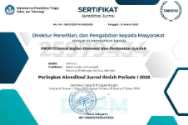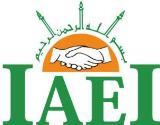PENERAPAN PRINSIP AL-IHSAN PADA AKTIVITAS BISNIS SEBUAH PERUSAHAAN: SEBUAH STUDI LAPANG DI “X” TRAVEL INDONESIA
(1) * Abdullah Ahadish Shamad Muis
 (Sekolah Tinggi Agama Islam (STAI) Al-Fithrah, Surabaya)
(Sekolah Tinggi Agama Islam (STAI) Al-Fithrah, Surabaya) Indonesia
(2) Maulidatus Sholihah (Sekolah Tinggi Agama Islam (STAI) Al-Fithrah, Surabaya)
Indonesia
(*) Corresponding Author
AbstractThe purpose of this study is to explain how the application of Islamic business ethics, specifically the principle of al-ihsan in a company's business activities based on a field study at X Travel Indonesia. This study uses a mixed method approach, which is a merger of qualitative and quantitative approaches taken from the company's internal and external perspectives. To find out the application of the principle of al-ihsan in the internal scope of the company, data collection techniques used depht interviews to five informants and direct observation. Meanwhile, to find out the application of the principle of al-ihsan in the external scope of the company, a survey was conducted to 86 partners and customers of X Travel Indonesia. Based on the results of the assessment of its customers, it was found that X Travel Indonesia has applied the principle of al-ihsan to its business activities with a score of 82.79%. Forms of the application of the principle of al-ihsan in X Travel Indonesia in the field of Production include: The existence of a refund mechanism; Finance: Carrying out social services and charity every month of Ramadan, Settling debts by deliberation and family relations; Marketing: Delivering to customers if there are deficiencies in each service, Do not bring down other competitors and even support each other; Human Resources: Be friendly and establish a family feel, Forgive staff if there is a mistake by continuing to act decisively if necessary
|
Keywords
al-Ihsan, Corporate
Full Text: PDF
Refbacks
- There are currently no refbacks.
Copyright (c) 2019 Abdullah Ahadish Shamad Muis, Maulidatus Sholihah
This work is licensed under a Creative Commons Attribution-NonCommercial-ShareAlike 4.0 International License.
Profit : Jurnal Kajian Ekonomi dan Perbankan Syariah
Published by Islamic Faculty of Nurul Jadid University, Probolinggo, East Java, Indonesia.
Published by Islamic Faculty of Nurul Jadid University, Probolinggo, East Java, Indonesia.





.jpg)



